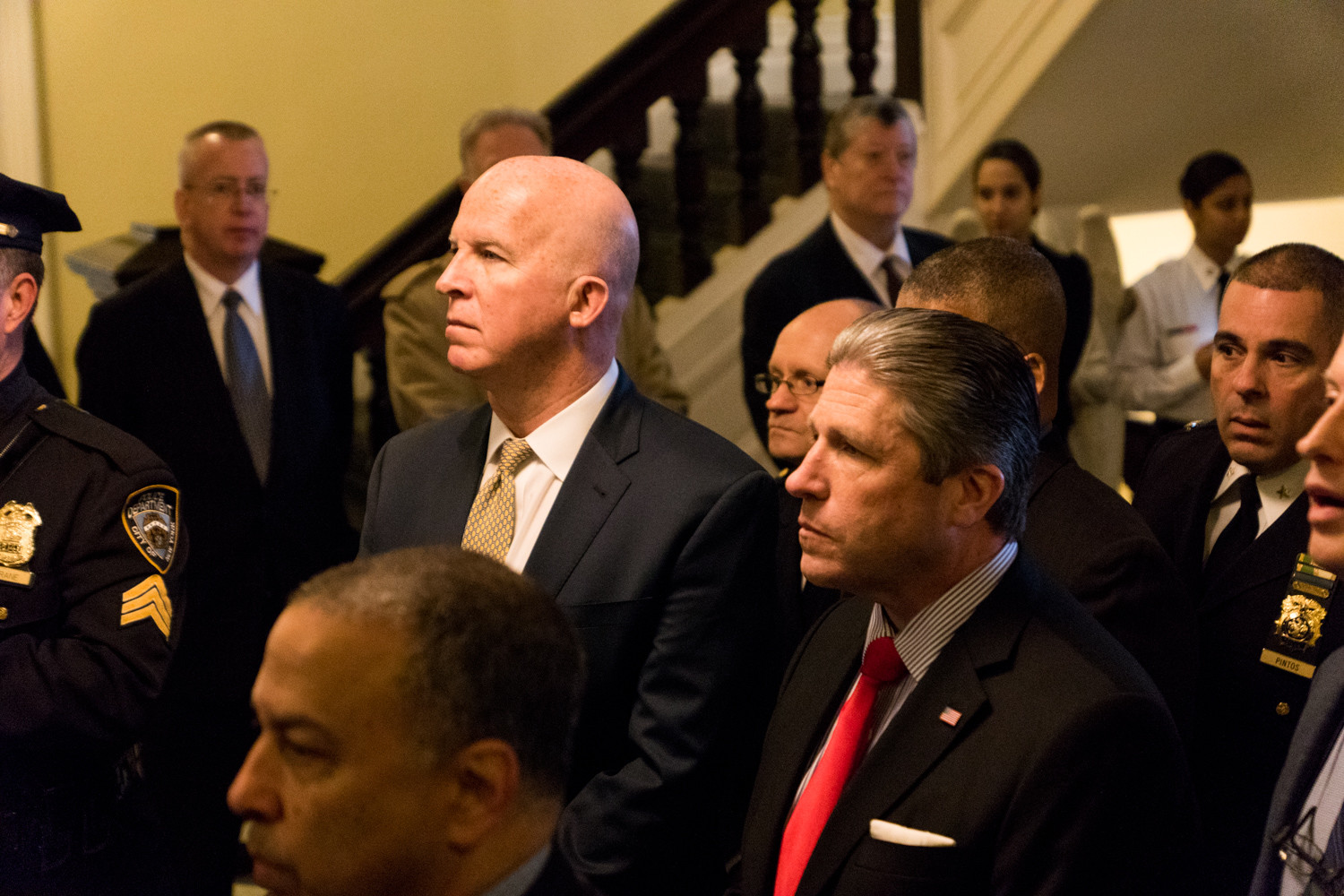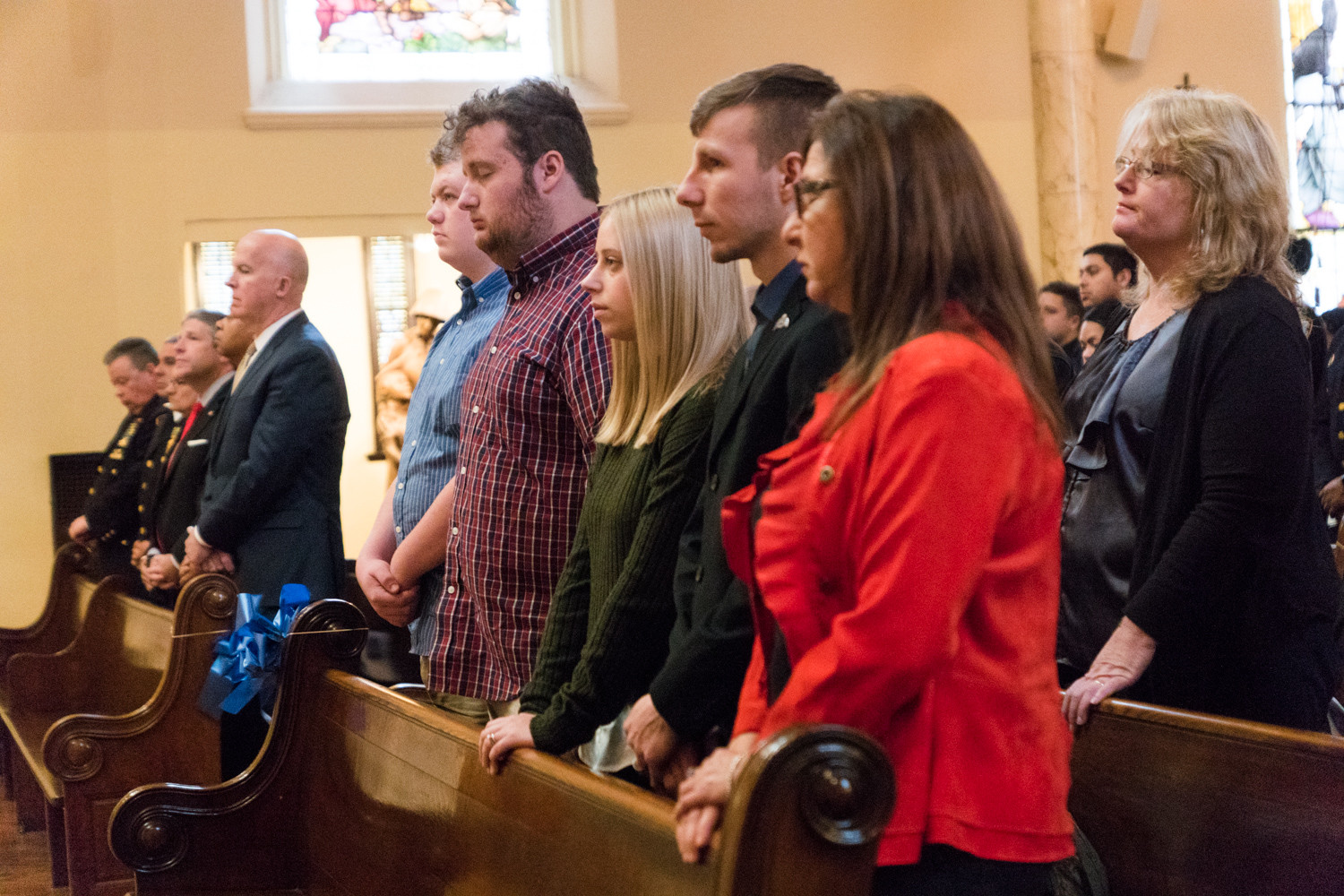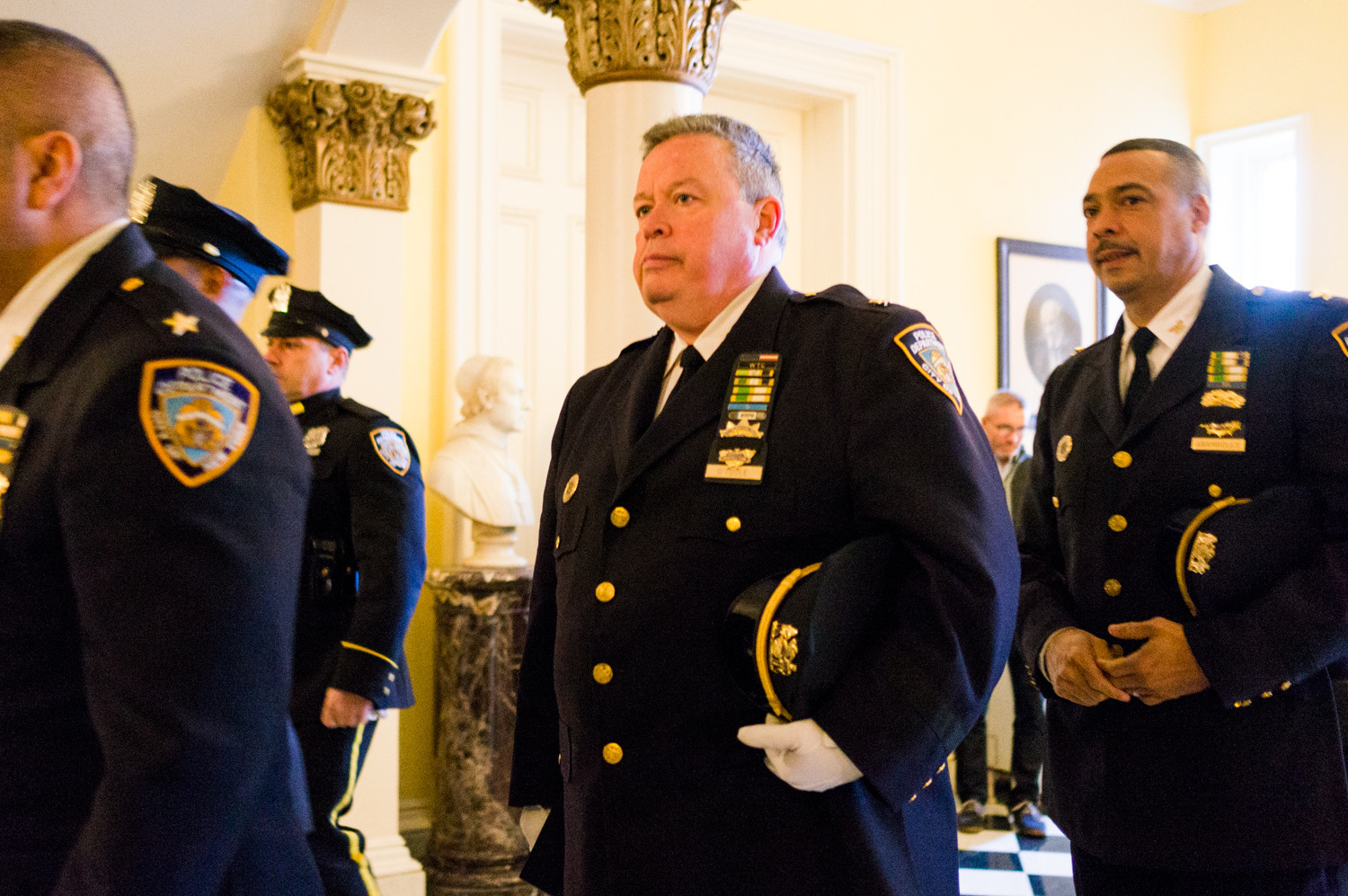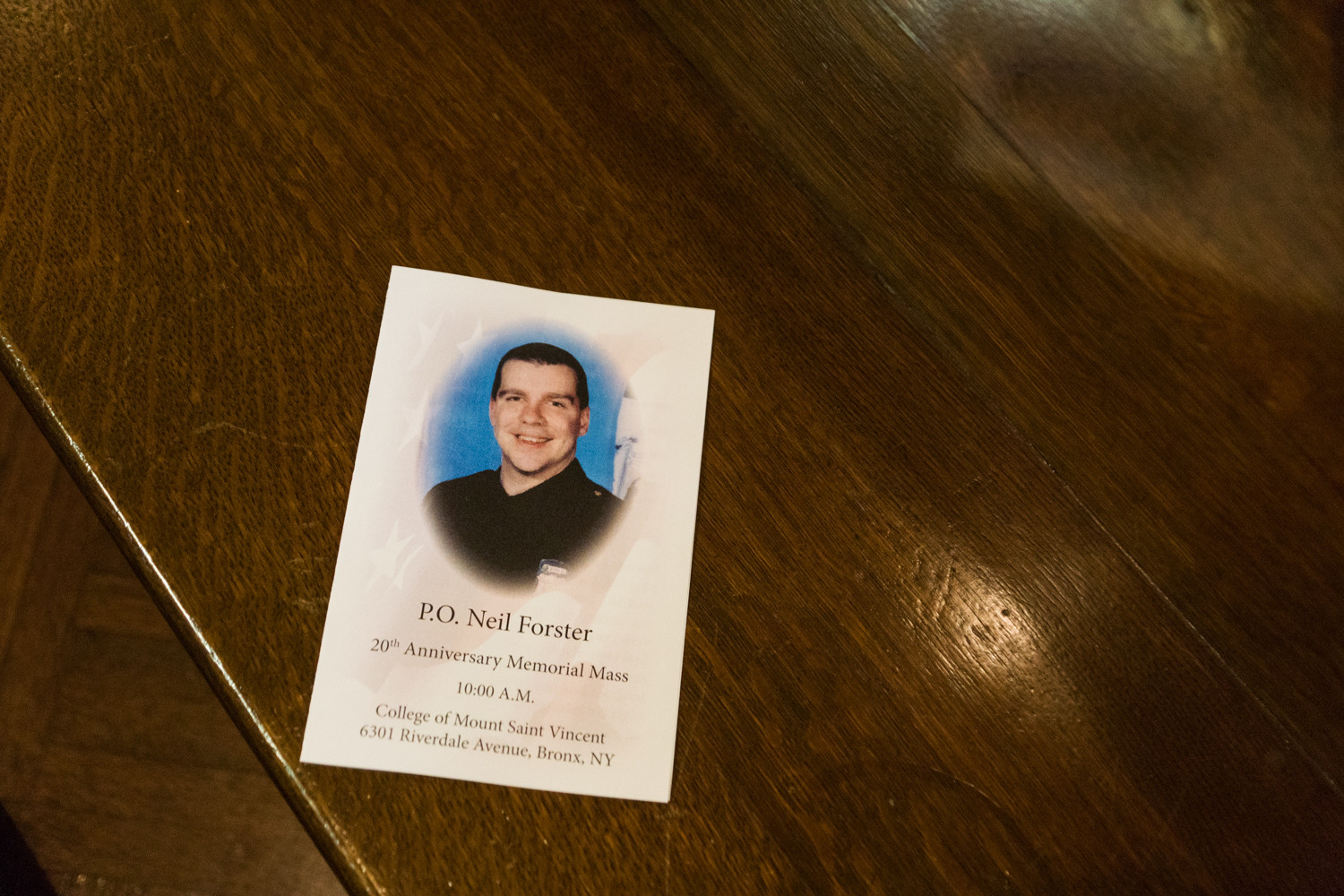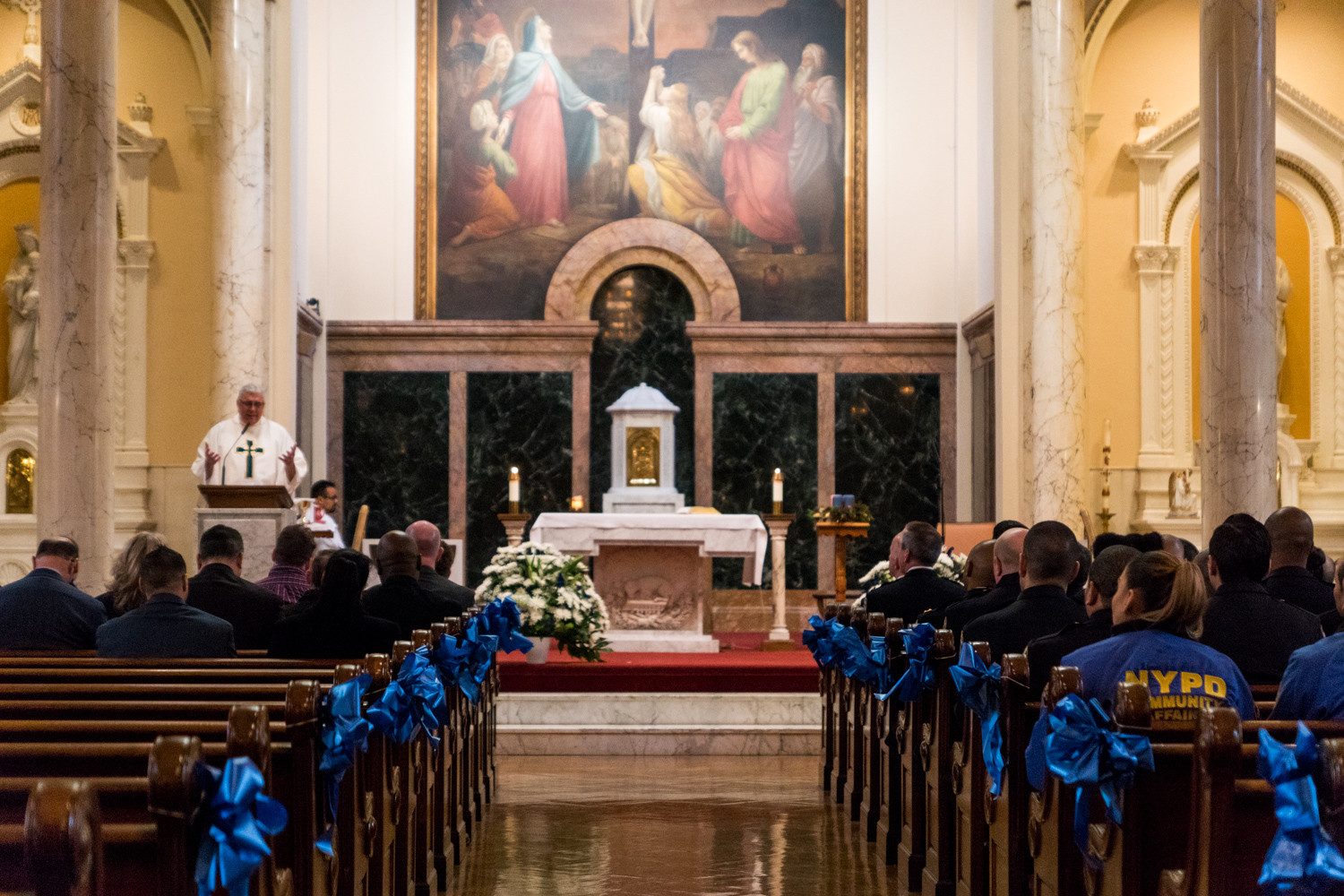Twenty years later, he’s still in their hearts
50th Precinct officers honor a comrade run over on the Deegan Expressway in 1996
On a chilly, gray morning last week, some 150 people — many of them from the New York Police Department — streamed into a chapel on the campus of the College of Mount Saint Vincent.
They were there to remember a fallen officer, Neil Forster — 20 years after his death.
“They say time heals all wounds,” said police commissioner James O’Neill, who attended the Mass. “I’m not so sure about that.”
Forster, who worked in the 50th Precinct, was run down and critically injured while directing traffic around a highway accident on the Major Deegan Expressway one early December morning in 1996. The driver was James Kalenderian, an off-duty police officer from the 44th Precinct, who was accused of drunken driving, vehicular assault and other charges, according to news outlets that covered the story back then.
Forster made slow but steady strides toward recovery, dedicating himself to a rigorous rehabilitation program and fighting to regain use of one leg, The Riverdale Press later reported. But in 1997, the 30-year-old officer was diagnosed with stomach cancer, and died a year after the accident.
At the time, he had just moved into a new house with wife Larisa and young son Benjamin with the help of 50th Precinct officers who contributed to a police program that raises money for injured officers.
Father Thomas Lynch, who delivered the Mass last week, focused on Forster in what he called a “resurrection light.”
“You have to celebrate this man’s life,” Lynch said. “Of course you’re mourning — and you always will — but you also have every right to celebrate this wonderful legacy that’s part of your life forever.”
Among the men in blue at the service was retired officer J.R. Torres, who, like Forster, worked the midnight shift.
“Midnight people are tight as tics,” Torres said, adding that once he got word of the accident over the police radio, he rushed to the scene. By then, however, Forster already was being raced to Jacobi Medical Center.
“Going into the hospital, I remember the sheer agony,” Torres said. “I didn’t think he was going to make it that night. And thank God, he made it.”
Forster had only been with the 50th Precinct for nine months before the accident. Afterward, doctors said his chance of survival was no better than a coin flip.
“We had a big party for him that summer, and he came in his wheelchair, and he just looked good — very optimistic, which was his nature,” said officer Kevin Preiss, who was a rookie with Forster in the same precinct. “Then, all of a sudden, boom. It all caught up to him a year later.”
Neil’s father, Roy Forster Sr., recalled when he got to his Franklin Street job in Tribeca at 4:30 a.m., the day of the accident, a highway patrol sergeant was there waiting to escort him to the hospital.
“I don’t know if he knew why he was picking me up, but he radioed his dispatcher to say, ‘I got the package,’” Roy said. “I was the package. And he said, ‘You have to come with me.’”
When he arrived at Jacobi, Mayor Rudy Giuliani and then police commissioner Howard Safir already were there, and his son was in intensive care. Surgeons had amputated his right leg in an attempt to save his life, and considered amputating the left as well.
“Twenty-one blood transfusions, three major operations,” Roy said. “But he died a year later, from cancer. The cancer was treatable, but because of the trauma the accident spread out through his body.”
The NYPD typically holds memorial services for police officers killed in the line of duty at 10-year milestones, said Terence O’Toole, commanding officer of the 50th Precinct. These go on for as long as the fallen officer’s immediate family is living and still in the area of the precinct. But the department maintains memorials in each precinct for as long as the precinct exists.
“NYPD’s motto is ‘We never forget,’” Deputy Chief Thomas Burns said. “We always pay tribute to the sacrifices of our heroes.”
Details of that fateful night might be vivid in the mind of Torres, but it’s also something Forster’s widow Larisa will never forget either.
“I remember that night like it was yesterday,” she said. “When something like that happens, it’s like your brain takes a picture of it, and it just doesn’t go away.”
Larisa was sleeping when she heard a knock on her door. It was a police officer. He told her Neil had been in an accident, and whisked her to Jacobi.
“Once I got there, I still didn’t understand what was going on, why there were so many people around,” she said. “But they finally told me, and when I finally seen him, if I wouldn’t have been married to him at the time for 12 years, I wouldn’t have recognized him.”
If she lost her husband to a tragedy, Larisa knows at the very least, his sacrifice won’t be forgotten, nor will she and the rest of her family ever be alone.
“They don’t forget,” Roy said of the NYPD. “They show a lot of respect for the fellow officers and the officers’ families. They become family. One big family.”


